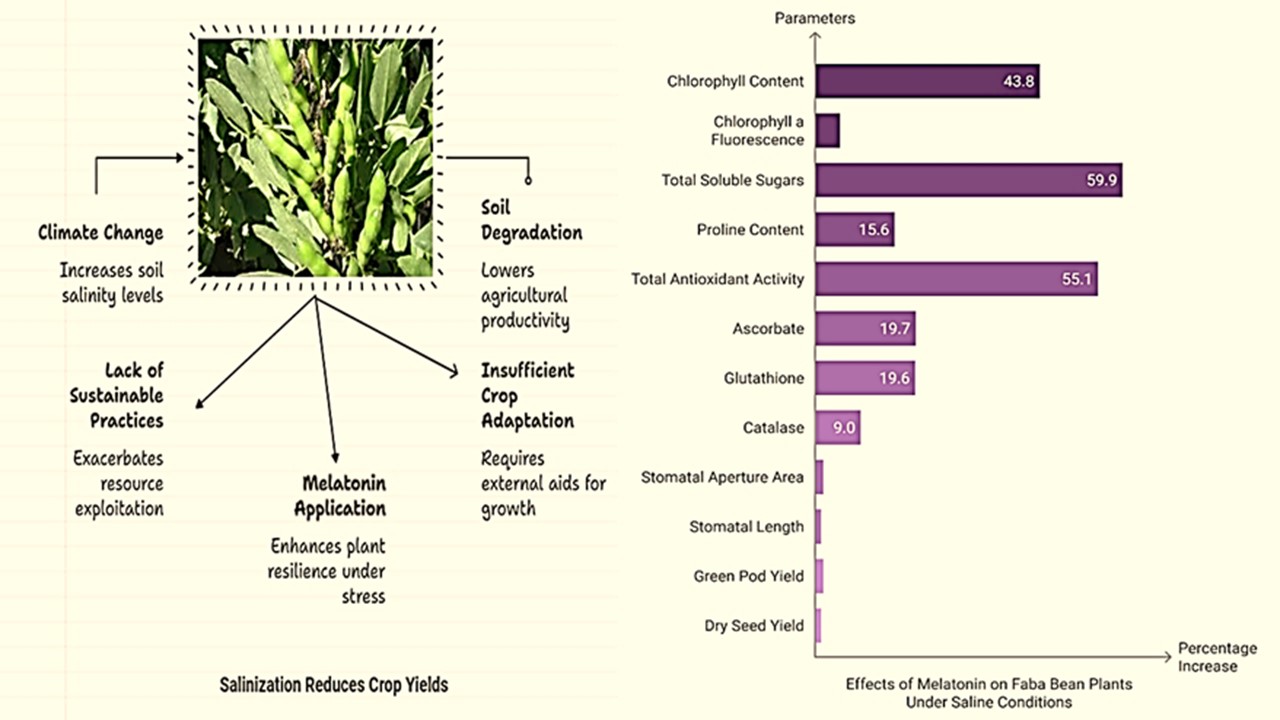
To meet the increasingly food demands, all environmental resources should be exploited in sustainable manner. Soil, a major component in agricultural for production, is subjected to salinization owing to climate changes. Growing crop plants in saline soil dramatically results in significant yield declines. Hence, crops require external aids to obtain rational quantity and quality of the economic product while achieving the land sustainability. Accordingly, a two-year field experiment was implemented for outstanding the probable changes in physiology and anatomy occurring in melatonin-treated faba bean plants under saline conditions. In randomized complete block design with three replicates, three levels of melatonin (0, 50 and 100 µM) were tested under salty stress conditions. The result data illustrated that application of melatonin (50 or 100 µM) maintained cell membrane stability index and leaf water content of salt-suffered faba bean plants. Chlorophyll content, chlorophyll a fluorescence, total soluble sugars, proline content, total antioxidant activity, ascorbate, glutathione and catalase were increased by 43.8, 5.0, 59.9, 15.6, 55.1, 19.7, 19.6, and 9.0%, respectively, owing to melatonin (100 µM) supply. Remarkable increases in stomatal aperture area and stomatal length were obtained with spraying of melatonin. Also, melatonin-treated faba bean plants at a rate of 100 µM showed increases of 1.75 and 1.33 folds in green pod yield and dry seed yield greater than the salt-suffered plants. In conclusion, regulation of faba bean plant growth can be adjusted in favour of a healthy physiological status and sustainable productivity under saline soils using melatonin at a rate of 100 µM.
Total file downloads: 16